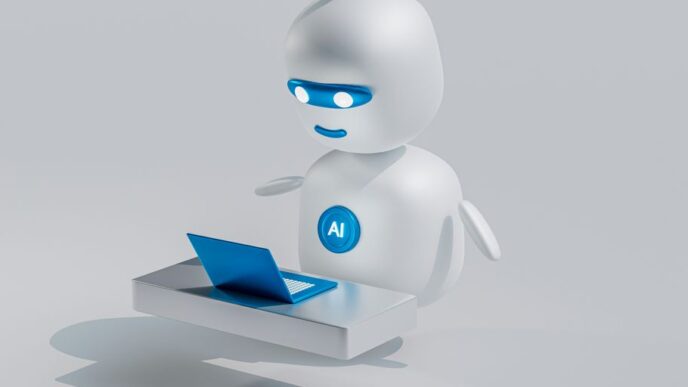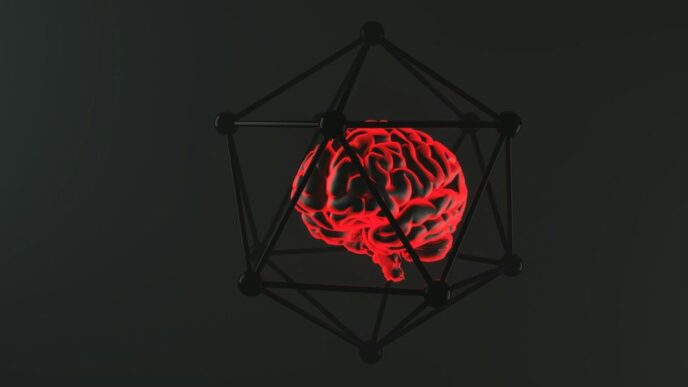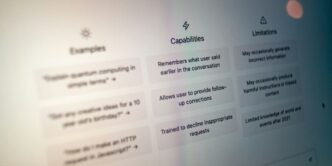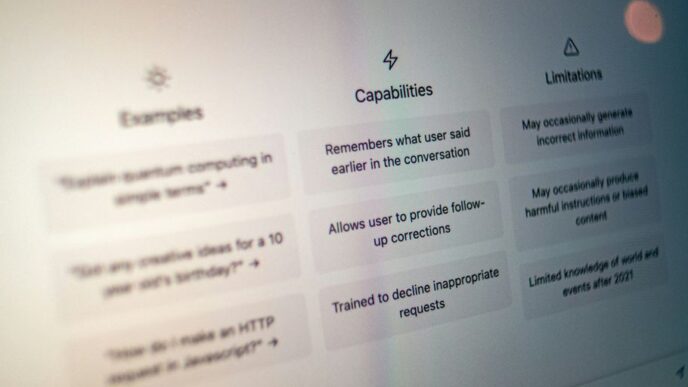Are you tired of the traditional performance management approach that involves yearly evaluations and infrequent feedback? Enter AI in Performance Management, a game-changing technology that is revolutionizing HR. With ongoing feedback, coaching, and performance evaluations powered by AI algorithms, employees can now receive real-time assessments of their work. In this blog post, we’ll explore how AI can enhance your organization’s performance management strategies and help you to unlock the full potential of your workforce. So let’s dive in!
What is AI in Performance Management?
Artificial intelligence (AI) in performance management is a new approach to evaluate employee performance with the help of machine learning algorithms. Simply put, AI can analyze patterns and trends in data more accurately and quickly than humans.
AI-powered performance management involves gathering large amounts of data from various sources such as emails, project management tools, calendars, and HR systems. This data is then analyzed using algorithms that identify individual strengths and areas for improvement.
Through this process, managers can provide continuous feedback to their employees about their work quality, progress towards goals, skills development opportunities and more. AI based platforms also facilitate peer-to-peer recognition which fosters a culture of appreciation within the organization.
AI in Performance Management allows organizations to measure employee productivity effectively while creating personalized training plans that lead to professional growth for each team member. The use of cutting-edge technology leads to better communication between managers and employees which ultimately improve organizational efficiency.
How can AI be used in Performance Management?
AI can be used in Performance Management to automate and streamline various HR processes. One way AI is being utilized is through ongoing feedback and coaching. With the help of AI-powered tools, employees can receive instant feedback on their performance, which allows them to make adjustments as necessary.
Another way AI can be used in Performance Management is through performance evaluations. Instead of relying solely on human judgment, organizations can use AI algorithms to analyze factors such as productivity, attendance record, collaboration skills, and more. This helps ensure that all employees are evaluated fairly based on objective criteria.
In addition to these applications, AI can also help identify areas where employees may need additional training or support. By analyzing data from employee interactions with training materials and identifying patterns in behavior or skill gaps, employers can create tailored development plans for each individual employee.
Utilizing AI in Performance Management has the potential to improve the accuracy and fairness of evaluations while streamlining HR processes for both managers and employees alike.
The Advantages of Incorporating AI into Performance Management:
Utilizing AI in Performance Management presents numerous benefits that can enhance the employee experience. One of the primary advantages is real-time feedback, which enables employees to receive relevant and constructive feedback at any time. This not only helps to prevent issues from escalating but also provides a platform for managers to address potential concerns before they become problems.
Another benefit is coaching and development, where AI can provide personalized recommendations based on an employee’s strengths and weaknesses. This approach allows managers to tailor their coaching efforts according to individual needs, improving overall performance outcomes.
AI-driven performance evaluations are also a significant advantage as it eliminates bias and creates a more objective evaluation process. By using data analytics, HR can make informed decisions about promotions, salary increases or further training opportunities based purely on merit.
AI reduces administrative tasks by automating repetitive activities such as scheduling meetings or sending reminders for deadlines. As a result, HR personnel have more time available for strategic planning and other important responsibilities that require human intervention.
Utilizing AI in Performance Management has multiple benefits that support both employers’ goals of driving business success while enhancing employees’ overall experience within the organization.
The challenges of using AI in Performance Management:
While AI in Performance Management brings a host of benefits, it’s not without its challenges. One significant challenge is ensuring the accuracy and fairness of AI-based performance evaluations. The data used to evaluate employees must be accurate, relevant, and unbiased. Otherwise, the results may be skewed or discriminatory.
Another challenge is employee acceptance and trust in AI-based evaluations. Employees may feel uncomfortable being evaluated by a machine rather than a human supervisor. They may also fear that their performance will be reduced to mere numbers and algorithms.
Moreover, the integration of an AI system demands a substantial investment in time, finances, and additional resources. HR teams need to ensure that they have adequate technology infrastructure and data privacy policies before deploying an AI system.
Maintaining an effective feedback loop between managers/HR professionals and employees is crucial for successful implementation of any performance management tool – including those leveraging AI technology.
While there are some challenges when using AI in Performance Management systems – these can often be mitigated through proper planning and execution strategies which prioritize transparency around decision-making processes as well as creating clear communication channels with employees throughout each step along the way!
How to get started with AI in Performance Management:
Getting started with AI in performance management may seem daunting but it doesn’t have to be. Below are a few guidelines to assist you in commencing the process:
1. Identify the areas where AI can make a difference: Start by assessing your current performance management process and identifying areas where AI can be used efficiently, such as gathering data on employees’ goals, feedback, and progress.
2. Choose the right software: There are many Performance Management tools available that integrate Artificial Intelligence into their systems. Do your research and choose a tool that aligns well with your organization’s needs.
3. Involve HR Personnel: It is essential to involve HR personnel who will be responsible for managing the AI system in daily operations from training of machines to updating employee evaluation standards..
4. Data Collection: Once an appropriate software has been chosen, start collecting data for analysis so the machine learning algorithms can produce accurate results based on historical information gathered.
5. Test and Refine Your System: Monitor how well the system works over time continually checking for any errors or issues that arise during implementation.
Remember, incorporating artificial intelligence into Performance Management should not entirely replace human interaction but rather enhance employee care while keeping track of progress more effectively!
Conclusion:
AI in Performance Management is a game-changer for HR departments. It offers a plethora of benefits such as accurate performance evaluations, ongoing feedback and coaching, and personalized development plans for employees. However, the challenges associated with using AI in Performance Management cannot be ignored. HR professionals must ensure that AI algorithms are ethical, unbiased and transparent to avoid any negative consequences.
Getting started with AI in Performance Management requires careful planning and implementation. HR professionals need to identify areas where they can leverage AI for performance management effectively while ensuring employee privacy and data security.
Incorporating Artificial Intelligence into your organization’s Performance Management process has the potential to improve productivity, increase employee retention rates and drive business outcomes. As we move towards an increasingly technology-driven world of work, adopting innovative solutions like AI will only become more important for organizations looking to remain competitive in their respective industries.











